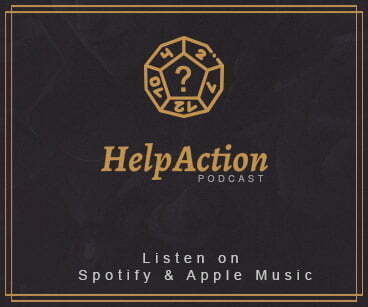So you have heard about all the hype, your friends have been bragging about the great times they have been having without you for months, they have finally roped you in and you are about to build your first Dungeons & Dragons character! But where do you start? As you put a character together there are four main principles that will make them up. These are your race, class, background, and alignment. Here we are going to focus on your characters’ humble, or maybe not so humble, beginnings as we go over what makes up a background.
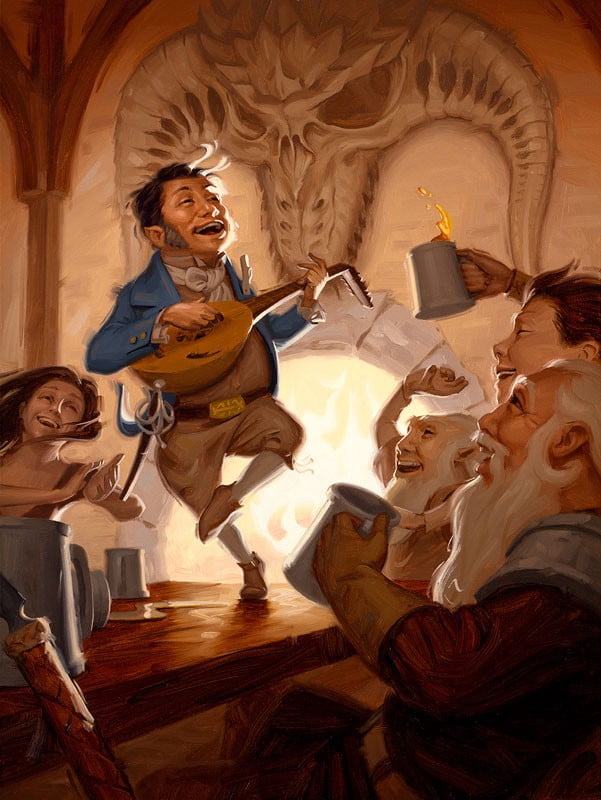
Table of Contents
What Is A background?
A sleep deprived sage pours over tomes by candlelight, on the brink of a great discovery, a young acolyte spends their days studying scriptures and tending to their temple, while a soldier stands guard at their post, daydreaming of something more exciting, a life of adventure. A character’s background is, in a way, their origin story. It puts together the rough outline for what your character did before turning to a life of adventuring as well as some of their ideals and personality traits. Depending on what you choose to do with these earlier days of your characters life, your background will grant you a few proficiencies, some gear, and features for your character that are all relevant to that time you spent.
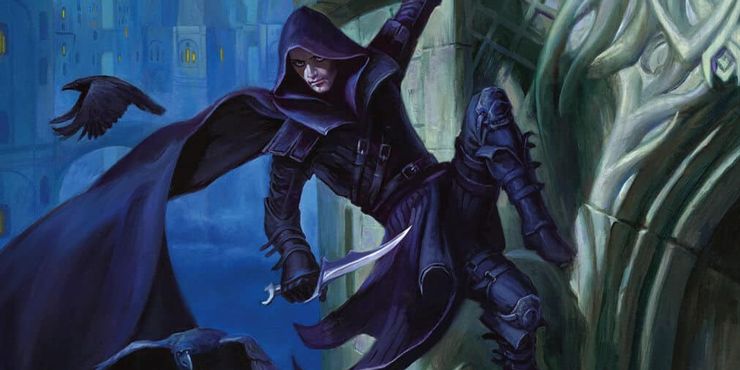
Choosing The Right Background
There is no one way to do this and it really comes down to the feel you want your character to have. Did they grow up with wide-eyed dreams of becoming the hero of their people, spending their time training to fight for the glory of honor and fame among them? Then maybe the Folk Hero background is what you are looking for. Or it’s possible that in order to protect their people and their land they joined the ranks of the local militia making the Soldier background a better fit. If they fought and found that honor as a soldier they could even use the Noble Knight, which is a Noble background variant.
However, just because you grew up as an acolyte in a temple looking after dusty old tomes and studying scriptures it doesn’t mean that your character has to enjoy those things now. Perhaps they grew bored with reading scriptures and wanted something more out of life. They want some excitement gods be damned! Backgrounds can also be the exact thing that a character is trying to run away from. They don’t always have to be pigeon-holed into certain classes. The Acolyte background isn’t reserved just for clerics. Maybe you were brought up as an acolyte listening to the words of boring old priests, but you eventually get out and fall for the rough and tumble world and start your path to becoming the greatest fighter your region has ever known.
Backgrounds can spark some really fun roleplaying inspiration and can end up being a huge part of what makes your character themselves. You can lean as hard into it as you would like. Sometimes there may be a couple of backgrounds that seem like they could fit your character. Of course, you can always work with your DM to customize a background and make it just the way you want, but if you can’t make up your mind, the proficiencies and features granted by backgrounds can help make those decisions.
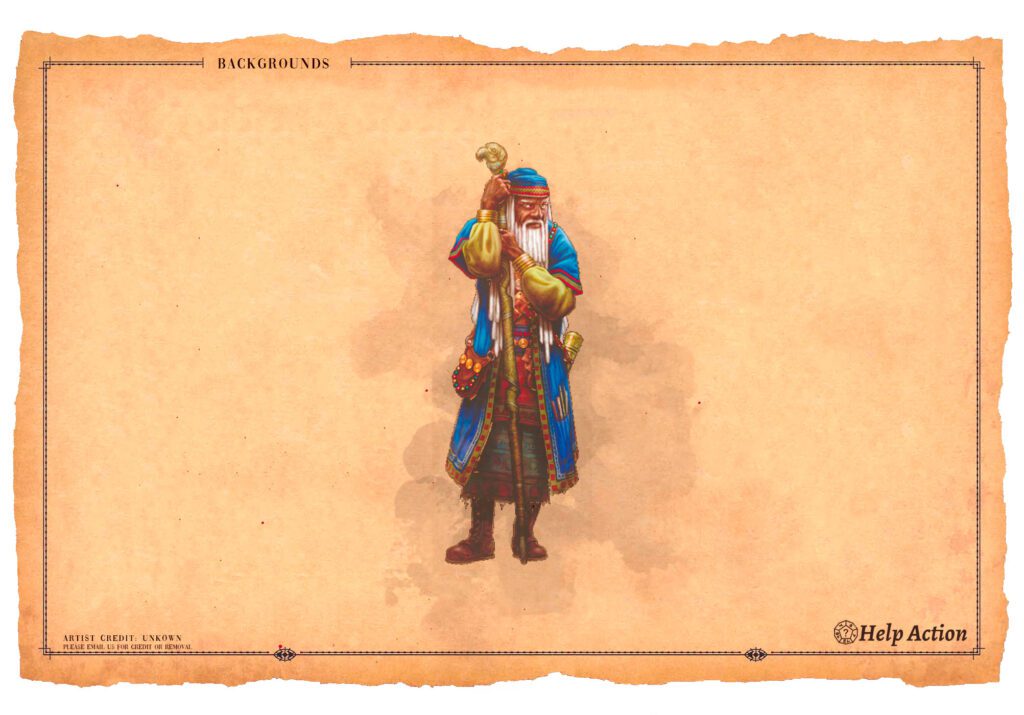
Proficiencies
Whether you were a criminal, a noble, or an entertainer, each background option will provide you with a few different proficiencies. These include proficiencies in skills, languages, and tools and they will all be relevant to the experience you gained from that upbringing. Here’s a look at each of them.
Skills
Certain classes are good at doing certain things, that is a given. The same goes with backgrounds, though they come with a good bit more leeway. Every background reflects this by providing you with two skill proficiencies. These skills will obviously have to do with things you would do with the chosen background. Entertainers are used to putting on a show so they have proficiency in Acrobatics and Performance, just as a criminal is good at, well, doing crime so they have proficiency in Deception and Stealth. Skill proficiencies are important to having an efficient character as they let you add your proficiency bonus to those skill checks and are usually what will help make up your mind when choosing between a few options.
Languages
The more languages a character understands the more they can interact with people and other things in the world. That being said, not every background calls for your character to have experience working with non-native languages, therefore not every background will offer language proficiencies, nor do they all grant the same number of them. Backgrounds will give you either one or two language proficiencies. One special exception is the Sage background which lets you choose three languages as they are especially studious and knowledgeable.. Language proficiencies allow you to understand and decipher written text or words spoken in the language.
Tools
Much like learning new languages, not every background has the need for using tools. Not all backgrounds will give you tool proficiencies, but like the languages, if they do you will get either one or two of them. In some cases you may see a type of kit, gaming set, or vehicle granted by your tool proficiencies. This is because they are considered tools and grant you benefits when using them the same way the tool sets do. Having proficiency with a tool set, a kit, a gaming set, or a vehicle allows you to add your proficiency bonus to ability and/or skill checks made to use the items in a particular situation. Charlatan’s are adept at fooling those around them so they are granted proficiency with the disguise kit and forgery kit while a sailor is accustomed to travel on the open sea and is given proficiency with navigator’s tools and water vehicles.
Equipment
A few bits of starting equipment will also come along with each background option. The equipment that you are granted is very simple and always flavored to be unique to that option. They will usually consist of some form of outfit or clothing as well as a small trinket or two to remind you of your time before adventuring. If your background grants you a proficiency with a set of tools or a kit, you will usually be granted the tools or kit in your equipment, but not always. You can also count on your background to include a small pouch of gold to start the game with, the amount varying from option to option.
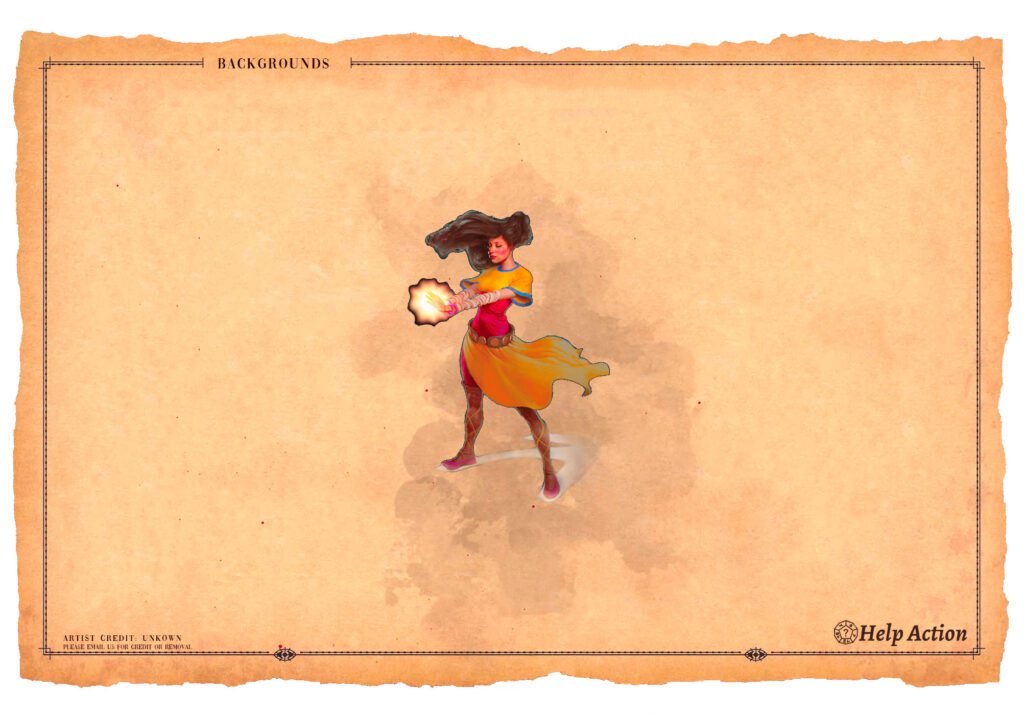
Specialties
Some background options may include an additional section compared to other ones. These additional sections are usually to help you customize your character by selecting a specialty within your background or other detail driven aspects of it. For example, the Criminal background has a table to help you determine your criminal specialty, from picking options like burglar, smuggler, or pick pocket, while the Guild Artisan background has an extra table to help you determine what kind of guild you may have worked for. These extra bits are just to give you a little extra roleplaying inspiration, and if a background doesn’t have something like this included in it, it doesn’t mean you can’t work with your DM to customize something fun that fits you.
Features
A charlatan creates a secret identity to slip through shady parts of town unnoticed, while an urchin slips past them moving through the backstreets they know like the back of their hand. Features are an important part of a background. A background feature is almost like a class feature. It is something you can use in a game that can grant you benefits from your past experiences. They can range from an acolyte using their connection to a temple to secure a place to stay for a night to an outlander being able to provide food and water for a group out in the wild. Background features aren’t going to be useful everyday or in a vast array of circumstances but they should all provide a functional use that your character will no doubt take advantage of from time to time.
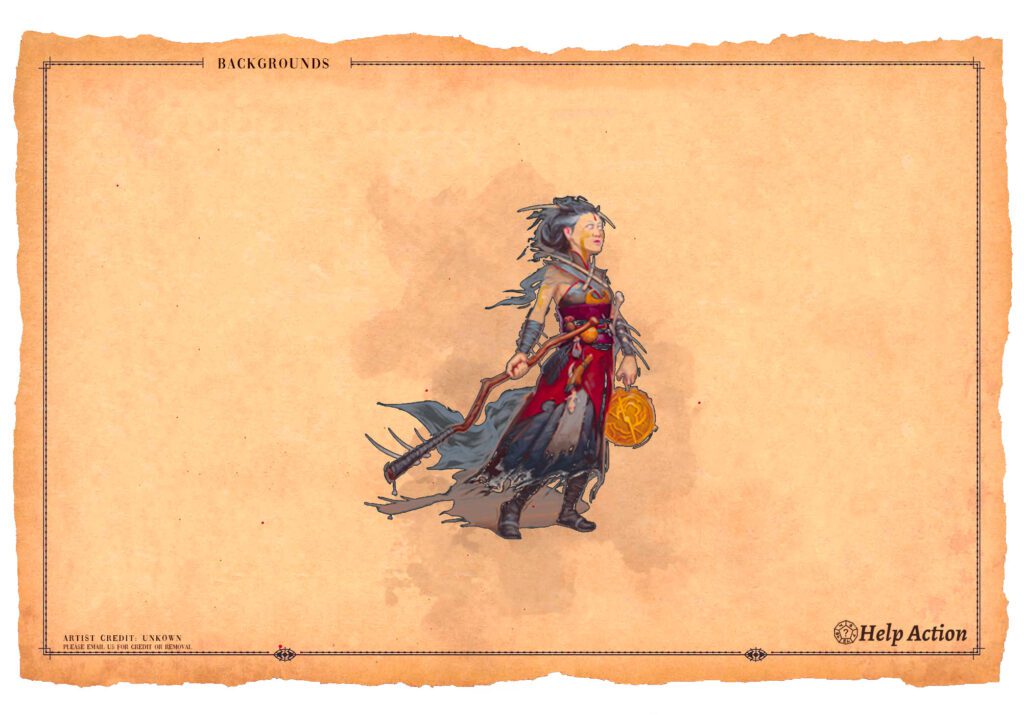
Suggested Characteristics
This section of a background will provide you with a set of tables to help you get a feel for how your character thinks and acts. The four different tables that are given allow you to roll some dice to randomly determine their characteristics, or you can use them as a list of options to choose from. If you don’t like any of them, you can always work with your DM to put together what works for your character. Here are the four tables:
Personally Traits
This is the largest of the four tables using a d8 to roll for your options while the other three will use a d6. The reason for this is that you are supposed to make two rolls, or selections, from these options and only one from the other options. The Personality Traits table helps you determine just that your personality. I know you can’t determine someone’s entire personality from two statements, this just helps you figure out two main aspects of it for you to build on from there. These traits shape your character and are meant to be reflected in your roleplaying decisions. If you roll an option you don’t feel comfortable roleplaying, or just doesn’t sound fun to you, feel free to pick another one. There is no sense in picking an option you won’t be able to enjoy playing.
Ideal
The Ideal tables give you a sense of your characters beliefs or moral standards. They give you a slight idea of how your character would feel about particular situations and are associated with a part of your alignment. You can select an ideal that matches whether you are good or evil, one that shows if you are chaotic or lawful, or if you don’t know what kind of alignment you want your character to be you can always roll for it. You aren’t restricted from selecting ideals that don’t coincide with your characters alignment, but if you are picking one that doesn’t, perhaps you are meant for a different one? If you simply don’t see one on the list you enjoy, ask your DM for some help coming up with a better one.
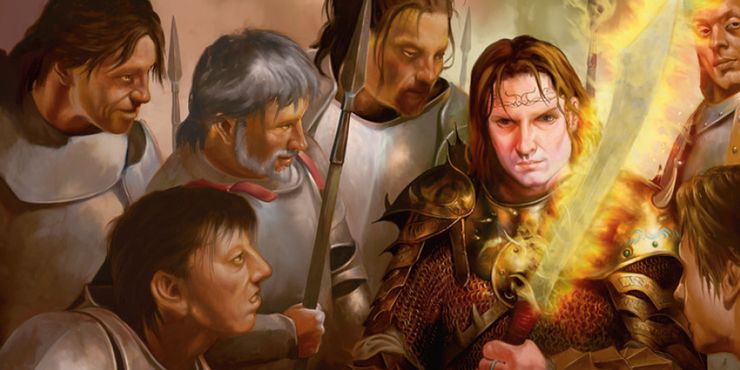
Bond
Selecting a bond gives your character a special connection with a person, place, or event from their previous life. It could be a certain someone who inspired you to fight for what is right and driven you to seek nothing less, or even be an unforgettable event that left you changed, for better or worse. Bonds are things or people you strongly care about and it is possible to forge new bonds during your adventures and don’t have to be associated only with your background. If it works it can also have connections to your class or even race.
Flaw
A charlatan that is always in debt, a hermit that would risk anything to uncover a bit of lost knowledge, and a noble that hides a scandalous secret. No one is perfect, and to prove that point each character will always start with a flaw. As with the other characteristics you can either roll on the d6 table or you can pick one that you would enjoy. Picking your flaw can always be a good way to go to make sure that you enjoy roleplaying the downsides of that character and seeing characters having to deal with their flaws can add depth to their personality. You can always work with your DM to come up with one that you would enjoy too. Flaws don’t always have to be some big, detrimental issue either. It can be something as simple as smacking your lips together really loudly when you eat or having a habit of calling people by the wrong name. Coming up with a flaw you enjoy can help make sure you are bringing out all the different aspects of your character during a game.
Now you should know what each part of your background does and how to make use of it. The different proficiencies, features, and characteristics will help make up your characters’ beginnings. There may be multiple options that fit your character, there may not be any that feel just right, but you can always work with your DM to come up with something that works for you. I hoped this helped you understand what makes up your background. If there is anything else you would like to hear on backgrounds, leave a comment below with any questions!
Looking for backgrounds to use for your first character? See the 3 books any D&D newbie should own by clicking here!
